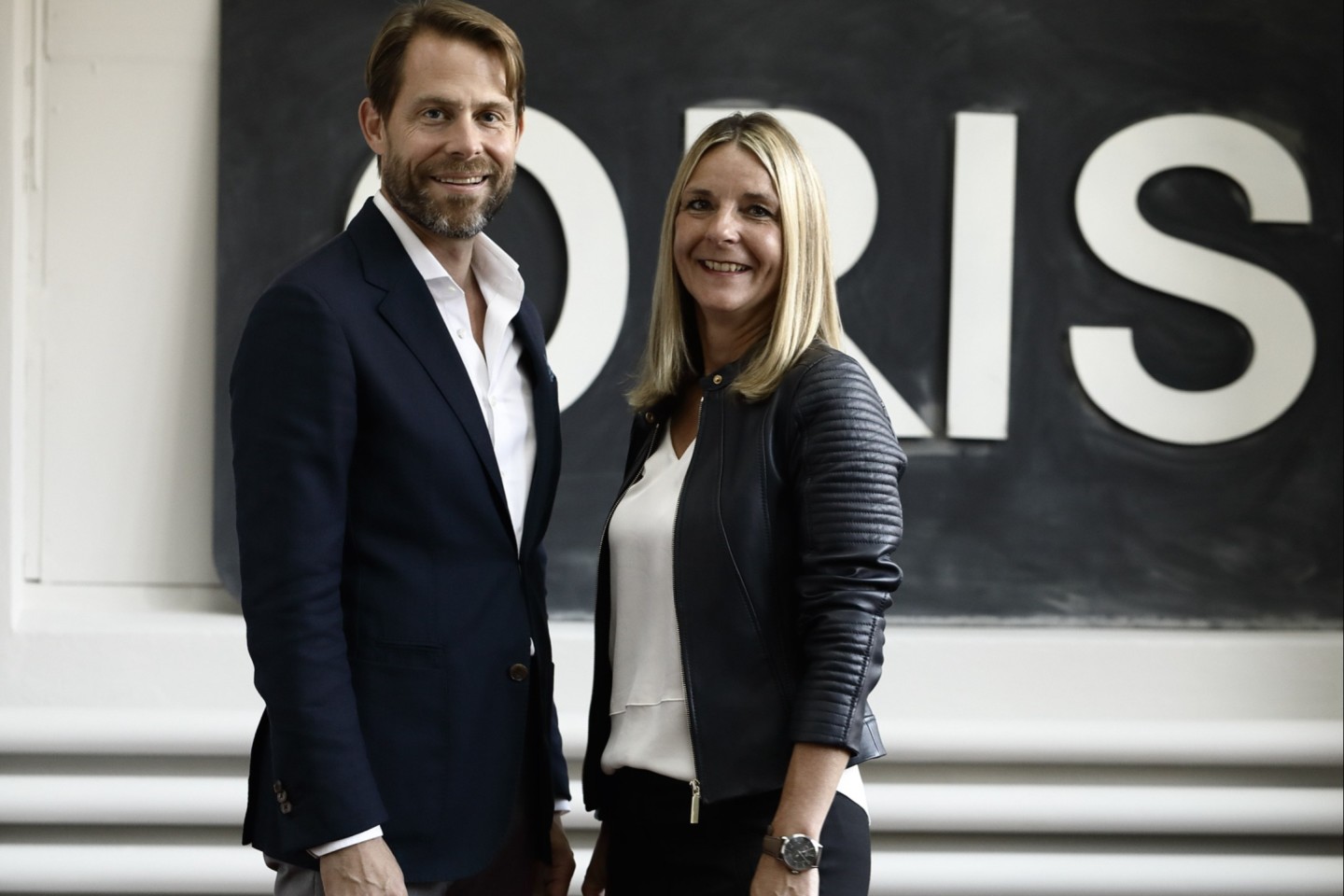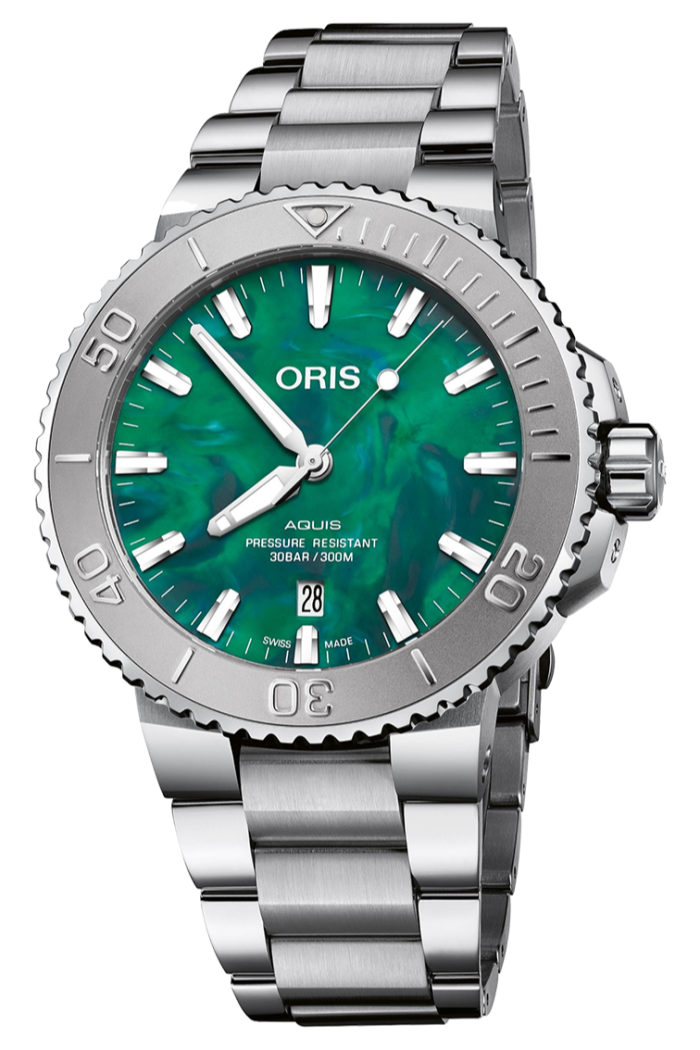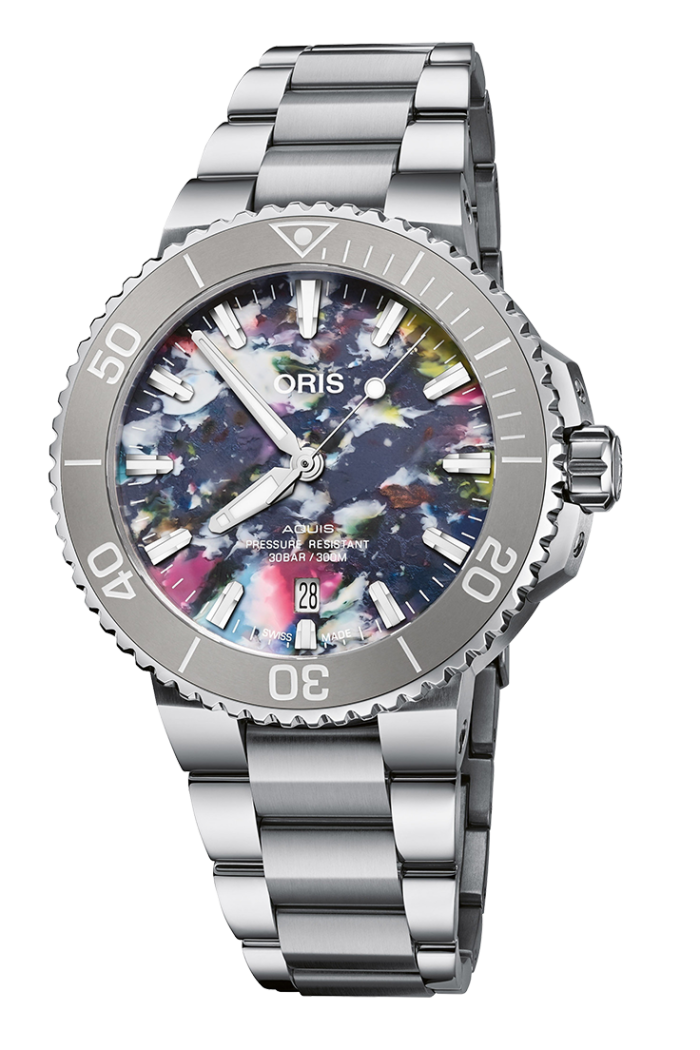Oris casts wide net to cut carbon footprint

Roula Khalaf, Editor of the FT, selects her favourite stories in this weekly newsletter.
“It’s really amazing how, now, we use basically trash in a luxury watch to create an emotion that today’s customer is interested in,” says Rolf Studer, co-chief executive of Oris.
The rubbish to which he is referring is the upcycled “ghost” fishing nets used to make the dial of the Swiss mechanical watch company’s newest piece. Launched this week, the Oris X Bracenet is the result of a collaboration with a German social enterprise that turns nets drifting free at sea, and posing a danger to wildlife, into accessories.
This special version of the brand’s Aquis Date diver’s watch is the latest Oris model designed with sustainability in mind. Previous designs include the Upcycle, with a dial made from recycled ocean plastic, released to mark the company becoming climate neutral in 2021. For every tonne of CO₂ the company pays to offset through environmental consultancy ClimatePartner, the social enterprise Plastic Bank collects 10kg of plastic for recycling.
These watch features make for a catchy story behind a launch, but should the brand be going further and rolling out such initiatives across its range?


Studer says it is not mechanical watches, which are “very sustainable” and “grow old with you”, but the “lifestyle” within the industry that needs addressing. He says about a third of the material in Oris’s watches is steel that has a recycled content of 60 per cent. Oris used 9 tonnes last year, which Studer equates to three return business class flights from Zurich to Los Angeles for environmental impact.
“All these events that we do, all these journalists, retailers that we fly around the world, they cause much more damage than our product, only people don’t like to hear it . . . because everybody enjoys the lifestyle,” he says. Oris took 31 members of the press from Europe, the Middle East and India to Zermatt, Switzerland, earlier this year.
It is the consumer of a luxury Swiss watch who travels that has “the big carbon footprint”, Studer says. “So if someone wears a watch like [the Bracenet] and maybe that influences choices they make, then we make a difference as a brand.”
Oris is changing its behaviour. It has a target to reduce annual CO₂ emissions by 10 per cent a year for three years from 2022, using 2019 as the baseline. Its second annual sustainability report, released this week, shows Oris fell short of its target last year, achieving a 7.8 per cent reduction in global emissions compared with 2019 — to 2,270.11 tonnes of CO₂ equivalent. Flight emissions, which accounted for 14.8 per cent of the total, were down 38.1 per cent. Initiatives to reduce emissions also include changing its fleet to electric vehicles and introducing lighter packaging.
Looking at sustainability from a different angle, Oris is rolling out leather straps made with Swiss company Cervo Volante from the hide of wild red deer culled every year in Switzerland to prevent damage to the countryside.
Oris’s drive to reduce its carbon footprint comes at a time of growth. Headcount increased by 30 to 210 people between January 1 2019 and January 1 2022; it is now 245. Oris has 24 boutiques plus four mobile Airstream US stores among 2,100 points of sale. Studer suggests it will add two or three more boutiques per year for the next few years.
Last year was the brand’s best yet, says Studer, who stepped up to share the top job with Claudine Gertiser-Herzog in 2016 after 10 years at the company. He expects 2023 to be “an OK year”. Consumer sales — measured via warranty card activations — “are still double digits up”, but there is a slowdown in retailers refilling stock because of external economic factors.
The Deloitte Swiss Watch Industry Study 2022 found a desire to decarbonise was driving 77 per cent of watch brands to invest more in sustainability, down three percentage points on 2021. Brand image and corporate strategy (both 74 per cent), and changing consumer demands or behaviour (77 per cent), were other primary reasons.
Under half of surveyed brands (48 per cent) published a sustainability report, though this proportion is likely to grow. Report co-author Karine Szegedi, consumer and fashion and luxury lead at Deloitte, says requirements coming into force in the EU and Switzerland for larger companies to report sustainability data, including carbon emissions, from next year is “a push in that direction”.
“[Sustainability] has to be really within the heart and soul of the CEO of the company or chair that says, ‘That’s the direction we’re moving’, because it impacts everything,” she adds. “But . . . a new luxury consumer wants to consume sustainably and responsibly.”
Studer says that as a smaller, independent watch company, Oris has to look after its means, which translates into doing “the most sustainable thing”. “That’s always who we were, taking responsibility,” he says. “I like to describe ourselves as being the citoyens of this feudalist industry.”
Wearing a watch such as the Upcycle is a “statement towards what you believe in”, he says.
“People ask me, ‘How much [ocean] plastic do you use? How many kilos of fishing nets do you use [in the Bracenet]?’” he adds. “That’s not the point . . . it’s that watch on your wrist that talks about what your values are that makes a difference.”
Comments